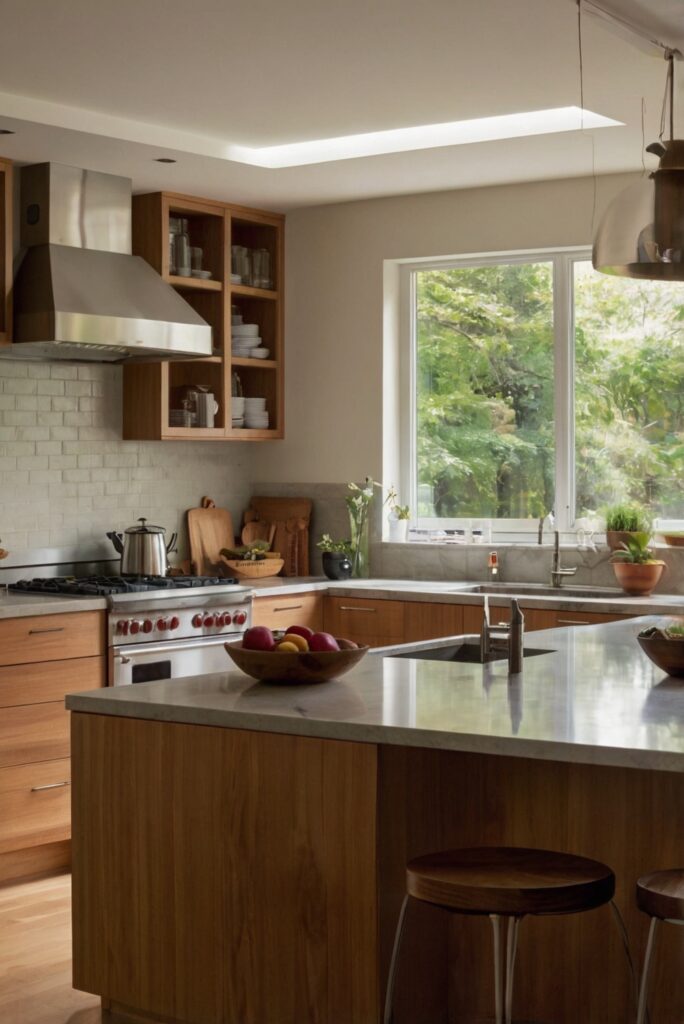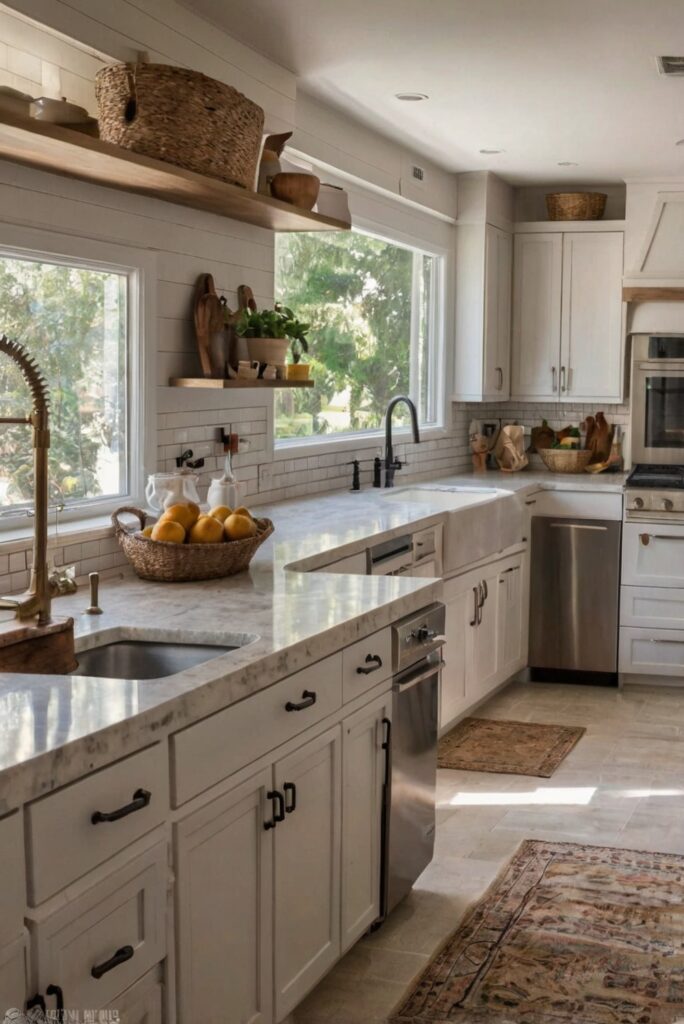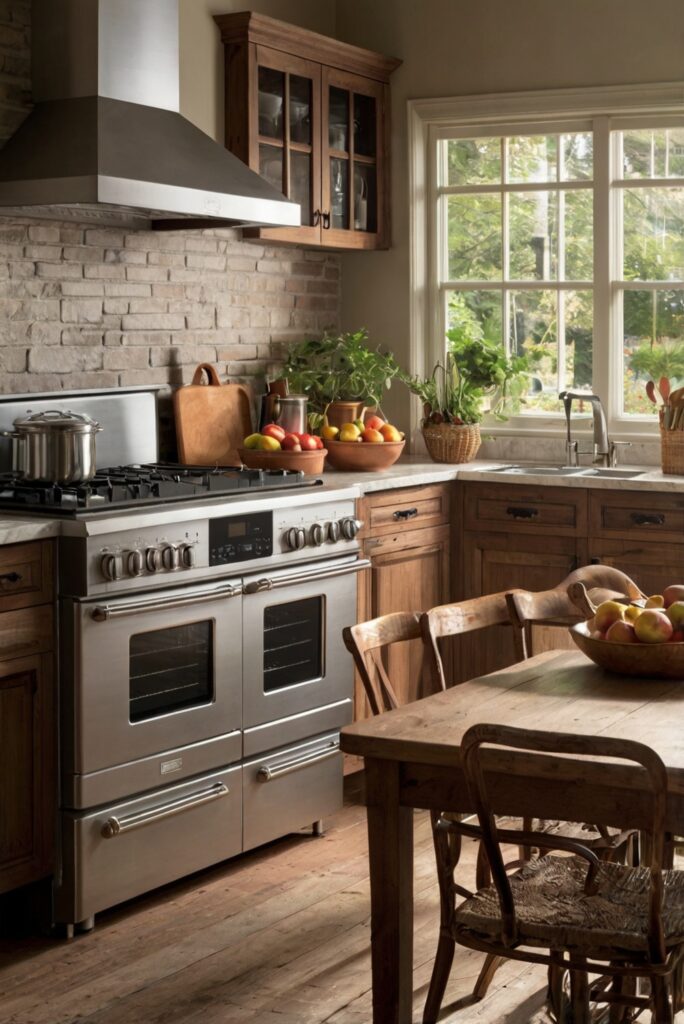Discover the must-have appliances for creating an eco-friendly kitchen. Embrace sustainable living with these high-quality additions to your home.
What Are the Best Appliances for a Sustainable Kitchen?
What Are the Best Appliances for a Sustainable Kitchen?
The best appliances for a sustainable kitchen include energy-efficient models such as induction cooktops, convection ovens, and ENERGY STAR-rated refrigerators. These appliances not only help reduce energy consumption but also contribute to a greener environment. When setting up a sustainable kitchen, consider using eco-friendly materials for countertops, cabinets, and flooring. Implementing a composting system and using reusable containers can further reduce waste. Additionally, incorporating natural light and proper ventilation can enhance the overall sustainability of your kitchen.
What Are the Best Appliances for a Sustainable Kitchen?
Energy-Efficient Refrigerator:
An energy-efficient refrigerator is a crucial appliance for a sustainable kitchen. Look for models with the Energy Star label, which indicates that they meet strict energy efficiency guidelines set by the U.S. Environmental Protection Agency. These refrigerators use less energy, reduce greenhouse gas emissions, and help lower your electricity bills. Additionally, consider a refrigerator with adjustable temperature settings and smart features to optimize energy usage.
Induction Cooktop:
When it comes to cooking, an induction cooktop is a sustainable choice. Induction cooking is more energy-efficient than traditional gas or electric stoves because it heats the cookware directly using electromagnetic technology. This results in faster cooking times, precise temperature control, and less energy waste. Induction cooktops also have a sleek design and are easy to clean, making them a stylish and practical addition to any kitchen.
Energy-Efficient Dishwasher:
Investing in an energy-efficient dishwasher can significantly reduce water and energy consumption in your kitchen. Look for models with high Energy Star ratings and features like soil sensors, eco-friendly wash cycles, and delay start options. These dishwashers use less water and electricity while still delivering excellent cleaning performance. Additionally, consider using eco-friendly detergents and running your dishwasher during off-peak hours to further optimize energy usage.
Composting System:
A composting system is an essential appliance for a sustainable kitchen. By composting food scraps and organic waste, you can reduce landfill waste, lower greenhouse gas emissions, and create nutrient-rich soil for your garden. Choose a countertop compost bin or a larger outdoor composter based on your kitchen size and composting needs. Remember to follow proper composting guidelines to ensure the success of your composting efforts.
Water-Saving Faucet:
Installing a water-saving faucet is a simple yet effective way to promote sustainability in your kitchen. Look for faucets with low flow rates, aerators, and sensor technology to reduce water usage without compromising performance. By conserving water while washing dishes, cooking, and cleaning, you can lower your water bills and contribute to water conservation efforts. Additionally, consider fixing any leaks promptly and using eco-friendly cleaning products to further support a sustainable kitchen environment.
In conclusion, creating a sustainable kitchen involves choosing the right appliances that prioritize energy efficiency, water conservation, and waste reduction. By opting for energy-efficient refrigerators, induction cooktops, and dishwashers, you can minimize your carbon footprint and save money on utility bills. Incorporating a composting system and water-saving faucet further enhances your kitchen’s sustainability by reducing waste and promoting water conservation. It is essential to make informed choices when selecting appliances for a sustainable kitchen to create a greener and more eco-friendly cooking environment.
1. What are the best energy-efficient appliances for a sustainable kitchen?
Switching to energy-efficient appliances like Energy Star-rated refrigerators, dishwashers, and ovens can significantly reduce energy consumption in the kitchen. These appliances are designed to use less electricity or water without compromising performance. For example, an Energy Star refrigerator uses 15% less energy than non-certified models. Investing in these appliances can lead to long-term cost savings and reduce your carbon footprint.
2. How can I reduce water usage in my kitchen for sustainability?
Choosing water-efficient appliances like low-flow faucets, dishwashers, and water-saving dishwashers can help reduce water consumption in your kitchen. For example, a low-flow faucet can save up to 30% of water compared to traditional faucets. Additionally, opting for a water-efficient dishwasher can save both water and energy. By being mindful of your water usage and investing in water-saving appliances, you can contribute to a more sustainable kitchen.
3. Are induction cooktops a sustainable choice for the kitchen?
Induction cooktops are a sustainable choice for the kitchen due to their energy efficiency and precise cooking capabilities. Unlike traditional gas or electric cooktops, which waste heat, induction cooktops use electromagnetic technology to heat the cookware directly. This results in faster cooking times and lower energy consumption. Additionally, induction cooktops are safer and easier to clean, making them a popular choice for sustainable kitchens.
4. How can composting be incorporated into a sustainable kitchen?
Composting is a great way to reduce food waste and create nutrient-rich soil for gardening. In a sustainable kitchen, you can set up a compost bin for collecting food scraps like fruit and vegetable peels, coffee grounds, and eggshells. By composting organic waste instead of sending it to landfills, you can help reduce greenhouse gas emissions and promote a circular economy. Additionally, using compost in your garden can improve soil health and reduce the need for chemical fertilizers.
5. What are some tips for creating a sustainable kitchen on a budget?
Creating a sustainable kitchen on a budget is possible with some simple strategies. Start by replacing old appliances with energy-efficient models, which may qualify for rebates or tax incentives. Look for second-hand or refurbished appliances to save money and reduce waste. Reduce water usage by fixing leaks, installing low-flow faucets, and using water-saving dishwashers. Embrace plant-based cooking to reduce your carbon footprint and support sustainable agriculture. By making thoughtful choices and prioritizing sustainability, you can create an eco-friendly kitchen without breaking the bank.



